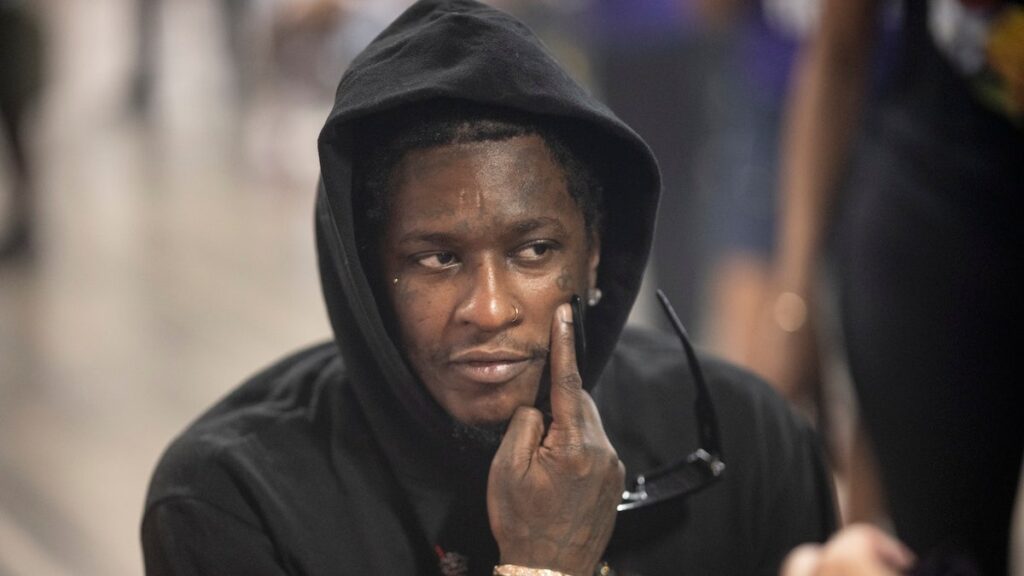Image
Image Credit
Prince Williams/Contributor via Getty Images
Image Size
landscape-medium
Key Takeaways:
- A Fulton County judge dismissed a civil forfeiture lawsuit, allowing Young Thug to reclaim seized assets.
- The ruling includes the return of about $145,000 in cash, two vehicles and multiple pieces of jewelry.
- The decision highlights how asset seizures can impact artists facing RICO charges.
Young Thug scored a new courtroom win in Atlanta. Nearly a year after walking free from jail, a Fulton County judge has ordered that the money, cars and jewelry seized during his headline-making RICO trial must be returned to the rapper.
On Monday (Aug. 18), Judge Paige Reese Whitaker dismissed a civil forfeiture lawsuit tied to Young Thug’s Young Stoner Life Records RICO case. Prosecutors attempted to hold onto property seized at the time of his 2022 arrest, but the judge ruled they missed mandatory deadlines to move the case forward.
The ruling means Young Thug is entitled to reclaim roughly $145,000 in cash, a Chevrolet Corvette, a Jeep Grand Cherokee and multiple pieces of jewelry. Other high-value assets, including a Lamborghini Aventador, Mercedes-Benz vehicles and several firearms, were already returned earlier in the process.
“The court has no option under the case law and under the statute but to grant this dismissal,” Judge Whitaker said from the bench, per Billboard.

Prosecutors argued the delays were caused by Young Thug’s own defense team, noting that attorney Brian Steel requested scheduling changes while juggling another high-profile case in New York. The judge rejected that reasoning, stressing that forfeiture laws must be “strictly construed against the state.”
Deputy District Attorney Jeff DiSantis later told local media the office was “perplexed” by the ruling and is considering an appeal. Any return of property could be postponed if prosecutors move forward with challenging the ruling.
The property dispute was the last loose thread in a case that dominated headlines for three years. Prosecutors accused Young Thug’s YSL Records label of operating as “Young Slime Life,” a violent street gang in Atlanta. The trial drew widespread attention not only because of the rapper’s (and his label signee Gunna’s) stature in Hip Hop, but also because prosecutors leaned heavily on his lyrics as evidence. The controversial tactic fueled ongoing debates about artistic freedom in the legal system. After a chaotic, drawn-out trial, Young Thug pled guilty and was ultimately sentenced to probation in 2024.



